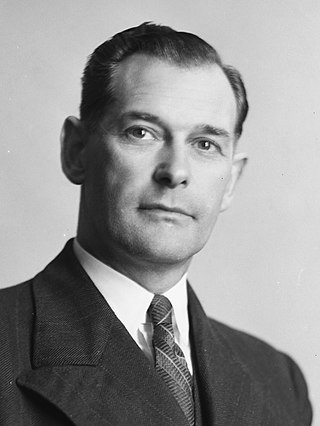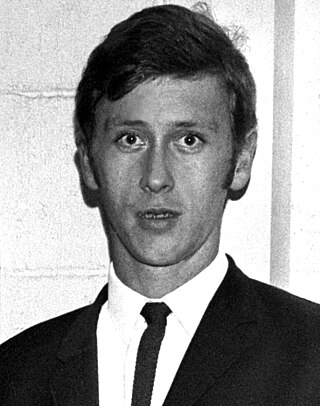| |||||||||||||||||||||
| Turnout | 14,022 (77.80%) | ||||||||||||||||||||
|---|---|---|---|---|---|---|---|---|---|---|---|---|---|---|---|---|---|---|---|---|---|
| |||||||||||||||||||||
| |||||||||||||||||||||
The Waitaki by-election 1962 was a by-election held in the Waitaki electorate in South Canterbury and North Otago during the term of the 33rd New Zealand Parliament, on 10 March 1962. The by-election was won by Alan Dick. [1]
| |||||||||||||||||||||
| Turnout | 14,022 (77.80%) | ||||||||||||||||||||
|---|---|---|---|---|---|---|---|---|---|---|---|---|---|---|---|---|---|---|---|---|---|
| |||||||||||||||||||||
| |||||||||||||||||||||
The Waitaki by-election 1962 was a by-election held in the Waitaki electorate in South Canterbury and North Otago during the term of the 33rd New Zealand Parliament, on 10 March 1962. The by-election was won by Alan Dick. [1]
The by-election was caused by the death of incumbent MP Thomas Hayman of the National Party on 2 January 1962. [2]
The Labour Party selected trade unionist Sir Basil Arthur as their candidate. In 1960 he had stood in the Hamilton electorate. [3]
There were several names put forward as potential nominees for the National Party candidacy: [4]
Dick was chosen to contest the seat. [4]
The Social Credit Party selected Alfred William Barwood as their candidate. Barwood was director of two companies (a Fairlie-based transport company and the McKenzies Lime Works). He was president of Social Credit's Fairlie branch and vicepresident of the Waitaki electoral committee. He had contested the seat Waitaki seat in 1960. [4] [5]
The following table gives the election results:
| Party | Candidate | Votes | % | ±% | |
|---|---|---|---|---|---|
| National | Allan Dick | 6,359 | 45.49 | ||
| Labour | Sir Basil Arthur | 5,957 | 42.61 | ||
| Social Credit | Alf Barwood | 1,664 | 11.90 | ||
| Majority | 402 | 2.88 | |||
| Informal votes | 42 | 0.30 | |||
| Turnout | 14,022 | 77.80 | |||
| Registered electors | 18,023 | ||||
| National hold | Swing | ||||
The National Party initially retained the seat with a substantially reduced majority with a majority of only 320. With an estimated 1000 special votes still to be counted, this put the result in doubt. [7] In the official count National raised the majority slightly to 402 votes. [8]

The 1978 New Zealand general election was a nationwide vote to elect the 39th New Zealand Parliament. It saw the governing National Party, led by Robert Muldoon, retain office, but the opposition Labour Party won the largest share of the vote. Reorganisation of the enrolment system caused major problems with the electoral rolls, which left a legacy of unreliable information about voting levels in this election.

The 1960 New Zealand general election was a nationwide vote to determine the shape of the New Zealand Parliament's 33rd term. It saw the governing Labour Party defeated by the National Party, putting an end to the short second Labour government.

The 1963 New Zealand general election was a nationwide vote to determine the shape of New Zealand Parliament's 34th term. The results were almost identical to those of the previous election, and the governing National Party remained in office.

Allan David Dick was a New Zealand politician of the National Party.

Neville George Pickering was a New Zealand politician of the Labour Party.

Waitaki is an electorate for the New Zealand House of Representatives that crosses the boundary of North Otago and South Canterbury towns on the East Coast of the South Island. The electorate was first established for the 1871 election that determined the 5th New Zealand Parliament. It has been abolished and re-established several times and in its early years was a two-member electorate for two parliamentary terms. The current electorate has existed since the 2008 election and is held by Miles Anderson of the National Party.
Clutha was a New Zealand parliamentary electorate from 1866 to 1996.
The Timaru by-election of 1985 was a by-election for the electorate of Timaru during the term of the 40th New Zealand Parliament. It was triggered by the death of Sir Basil Arthur on 1 May 1985. Sir Basil was Speaker of the House, and had inherited the rank of baronet from his father in 1949.

David Barnes was a New Zealand politician of the Labour Party.

The Sydenham by-election 1974 was a by-election held in the Sydenham electorate during the term of the 37th New Zealand Parliament on 2 November 1974. Eight candidates stood in total.
The 1954 Patea by election was held on 31 July during the 30th New Zealand Parliament, and was caused by the resignation of incumbent National MP, William Sheat.
The Marlborough by-election of 1970 was a by-election for the electorate of Marlborough, held on 21 February 1970 during the 30th New Zealand Parliament.
The 1967 Petone by-election was a by-election for the electorate of Petone on 15 April 1967 during the 35th New Zealand Parliament. The by-election resulted from the death of the previous member the Hon Mick Moohan on 7 February 1967. The by-election was won by Fraser Colman, also of the Labour Party.

The Fendalton by-election of 1967 was a by-election for the electorate of Fendalton on 15 April 1967 during the 35th New Zealand Parliament.

The Northern Maori by-election of 1963 was a by-election for the electorate of Northern Maori on 16 March 1963 during the 33rd New Zealand Parliament. The by-election resulted from the death of the previous member Tapihana Paikea on 7 January 1963. It was held the same day as the Otahuhu by-election.
The Grey Lynn by-election 1963 was a by-election held in the Grey Lynn electorate in Auckland during the term of the 33rd New Zealand Parliament, on 18 May 1963.
The Hurunui by-election 1961 was a by-election held in the Hurunui electorate in North Canterbury during the term of the 33rd New Zealand Parliament, on 10 June 1961.

The Bay of Plenty by-election 1957 was a by-election held in the Bay of Plenty electorate in the Bay of Plenty during the term of the 31st New Zealand Parliament on 6 April 1957.

The Buller by-election 1962 was a by-election held in the Buller electorate in the West Coast during the term of the 33rd New Zealand Parliament, on 7 July 1962.

The Timaru by-election 1962 was a by-election held in the Timaru electorate in Canterbury during the term of the 33rd New Zealand Parliament, on 21 July 1962.